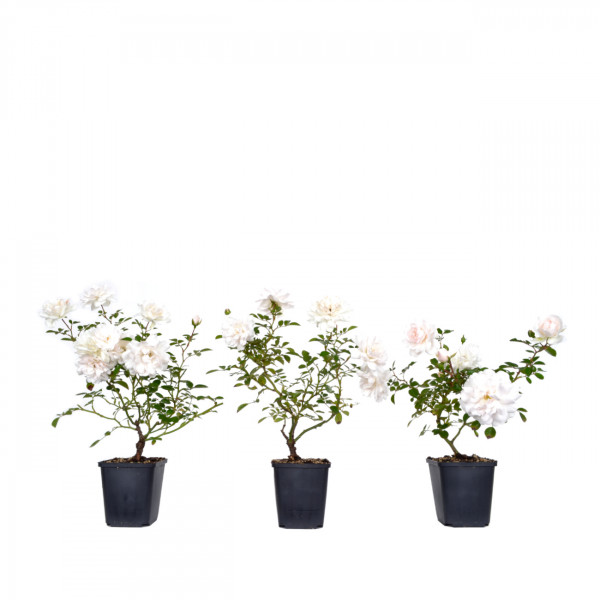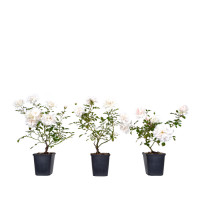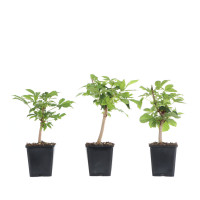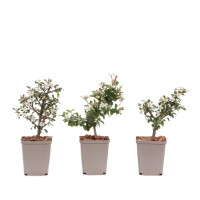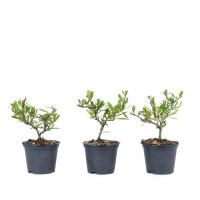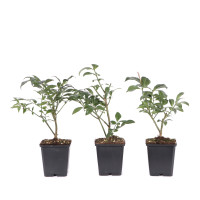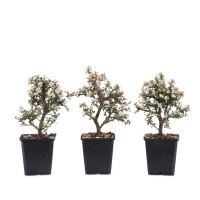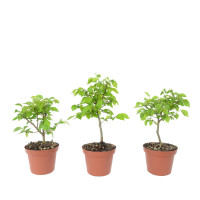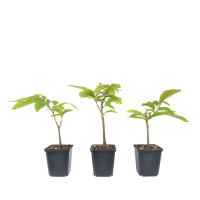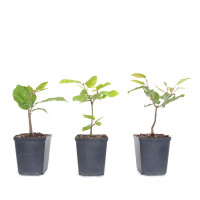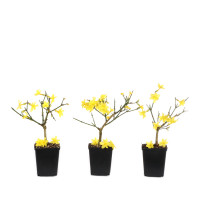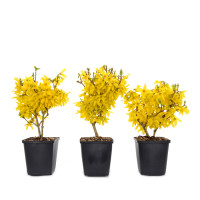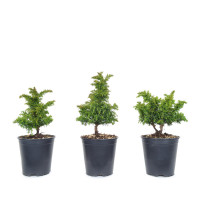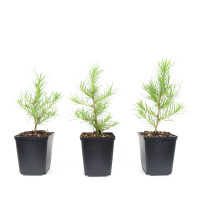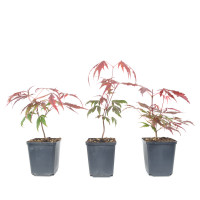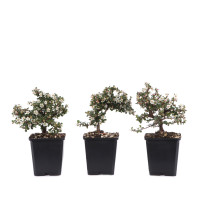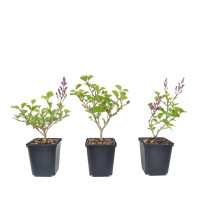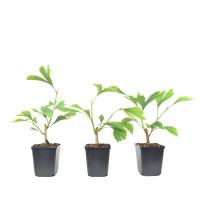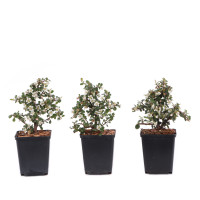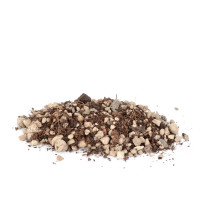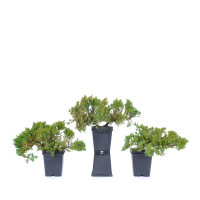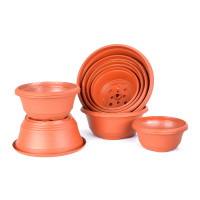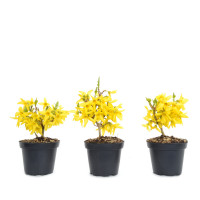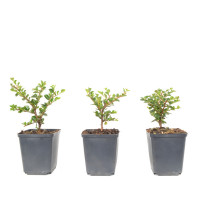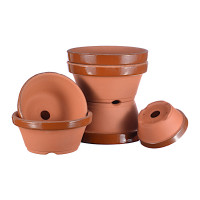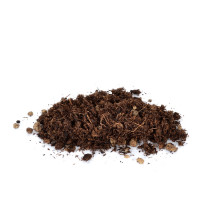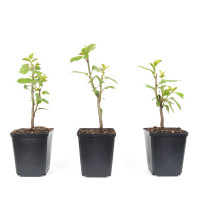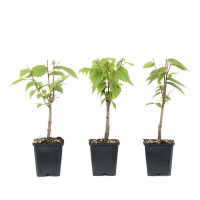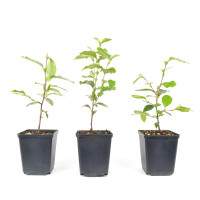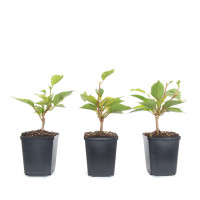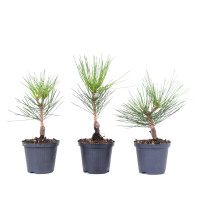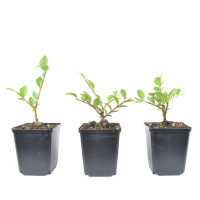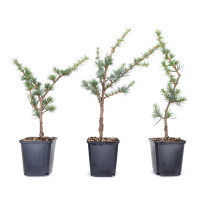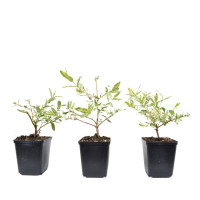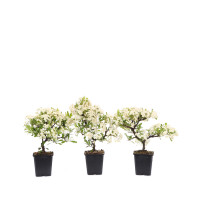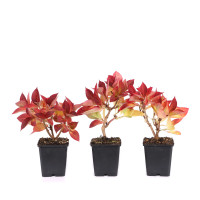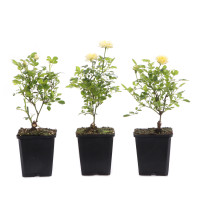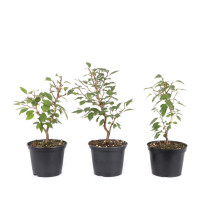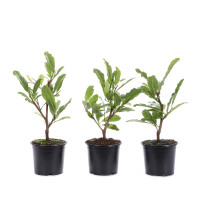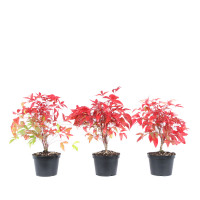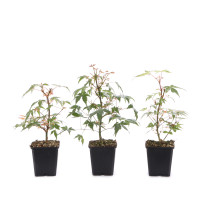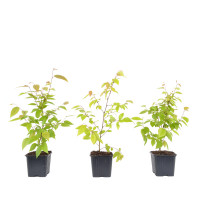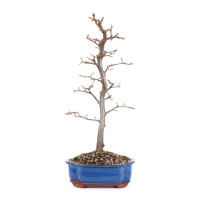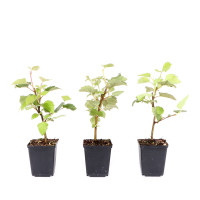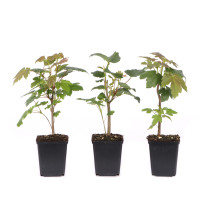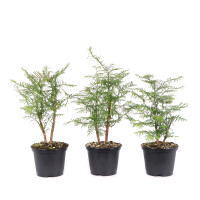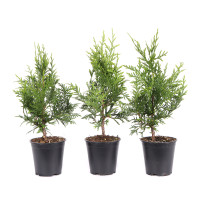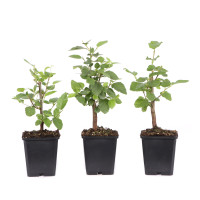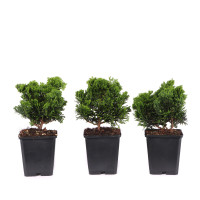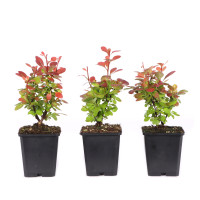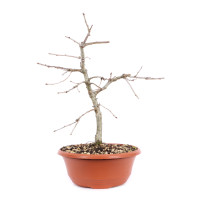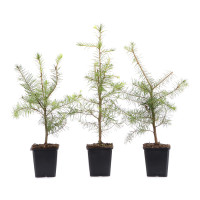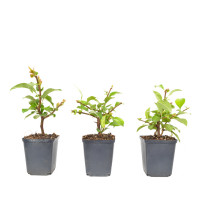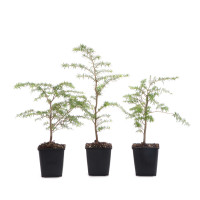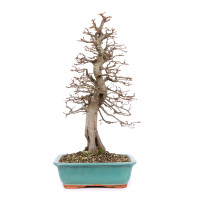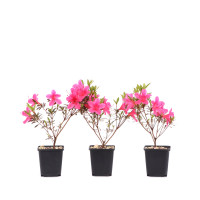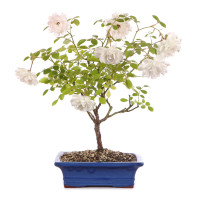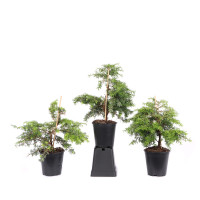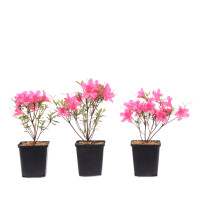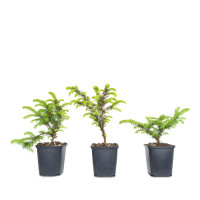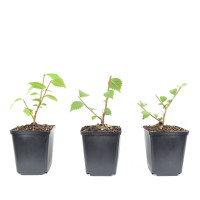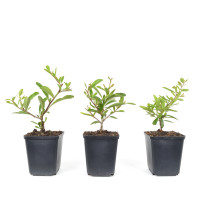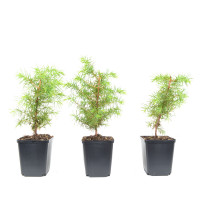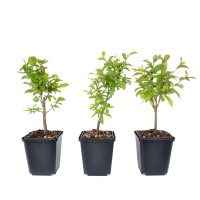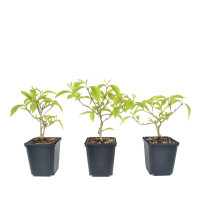- Order number: 1617-03-T
- Height: ca. 10 - 15 cm
- Foliage: deciduous
- Bonsai Pot: plastic pot
- Age: 3 years
- Characteristics: with flowers, with fruits
- Origin: Germany
- Product contents: You will get a similar plant
Rosa spec. - Dwarf White Rose
General:
The genus of roses includes over 100 wild species that were previously only found in the northern hemisphere. Today the distribution area is significantly larger due to reintroductions. Roses grow as plants that need light in open areas or extreme locations where trees cannot prevail. Because of the beauty and the scent of the flowers, it was cultivated by humans at an early age. Countless cultivated forms have emerged over the years, and the rose is a very popular ornamental plant worldwide.
Care as a bonsai:
Roses are particularly found in European ornamental gardens and are perhaps as dear to the Germans as the azaleas and flowering cherries are to the Japanese. But rose bonsai can also be found in Japan. The plants develop a tough, fissured trunk and a light crown. The thin long shoots hold delicate leaves and beautiful, fragrant flowers. Rose hips then adorn the plant in autumn and winter. Since the flowers develop on the annual wood, the usual maintenance pruning does not make sense. In Japan you can also often see roses, the shoots of which are allowed to sprout and bloom for a long time. If you then place the plant on a high cascade table, they look particularly beautiful. After flowering, it can be cut back. Then usually another shoot with a flower forms. In spring at the latest, the roses should be shortened vigorously so that they do not grow out of shape. Shoots that sprout at the roots must be removed in any case. Roses prefer a sunny and airy location. In winter, normal protection against dry winds is sufficient.
Special features of the variety:
This dwarf rose is a small and compact shrub. The small double flowers are white with a touch of pink. They develop several times from June to September. The leaves are dark green, shiny and disease resistant.

